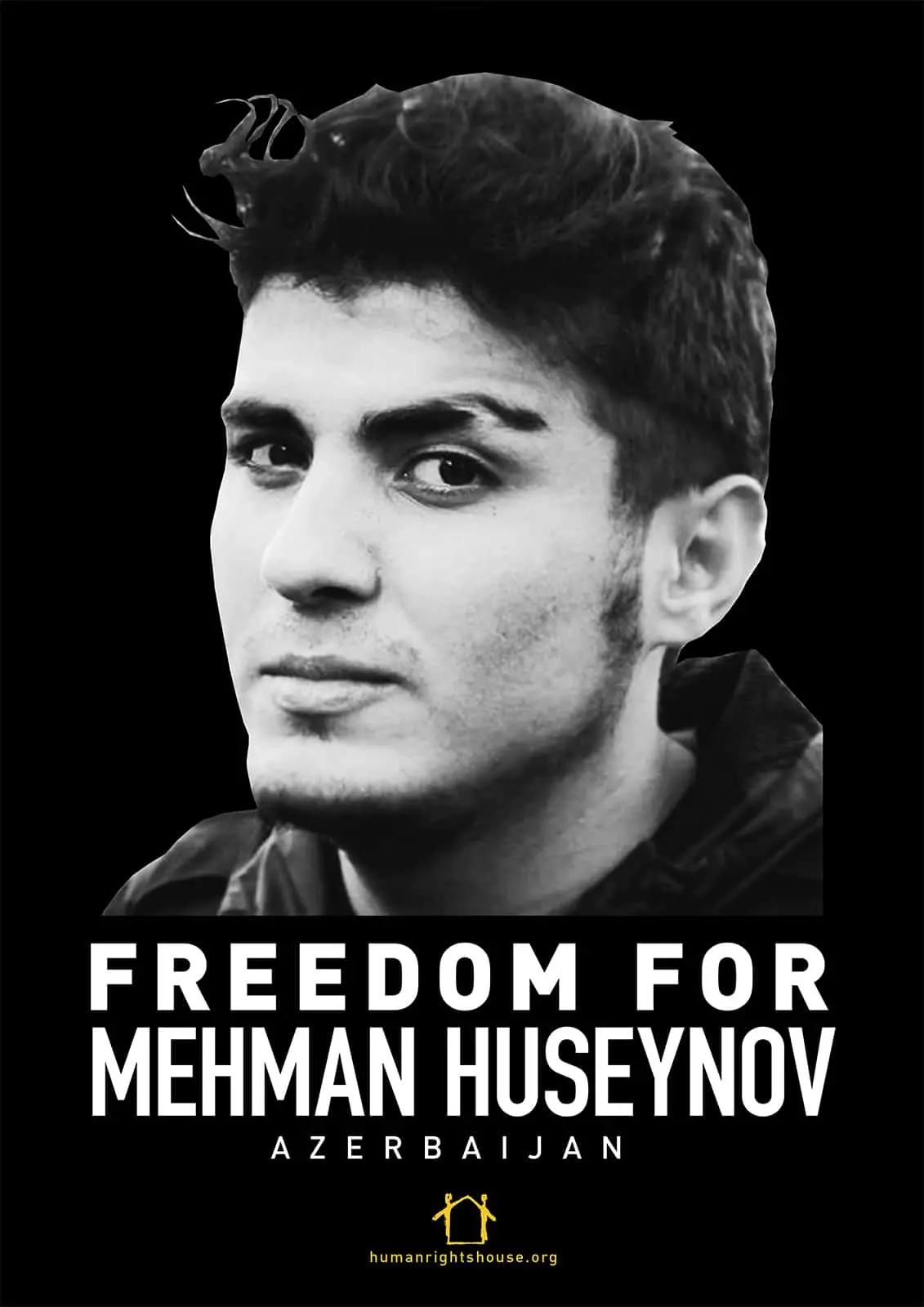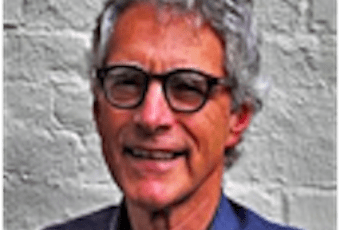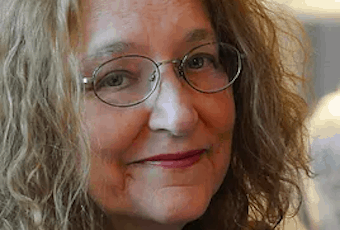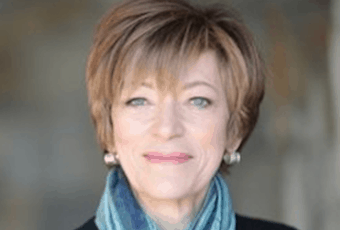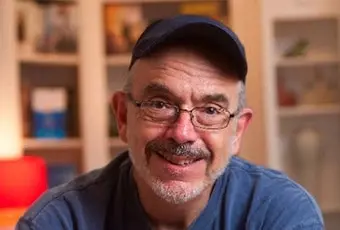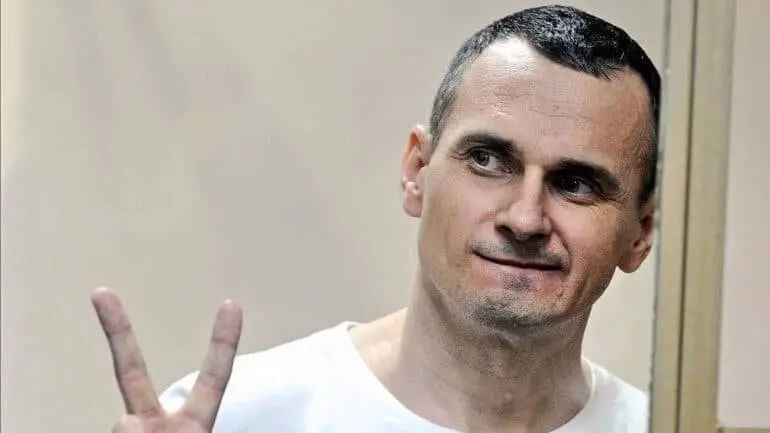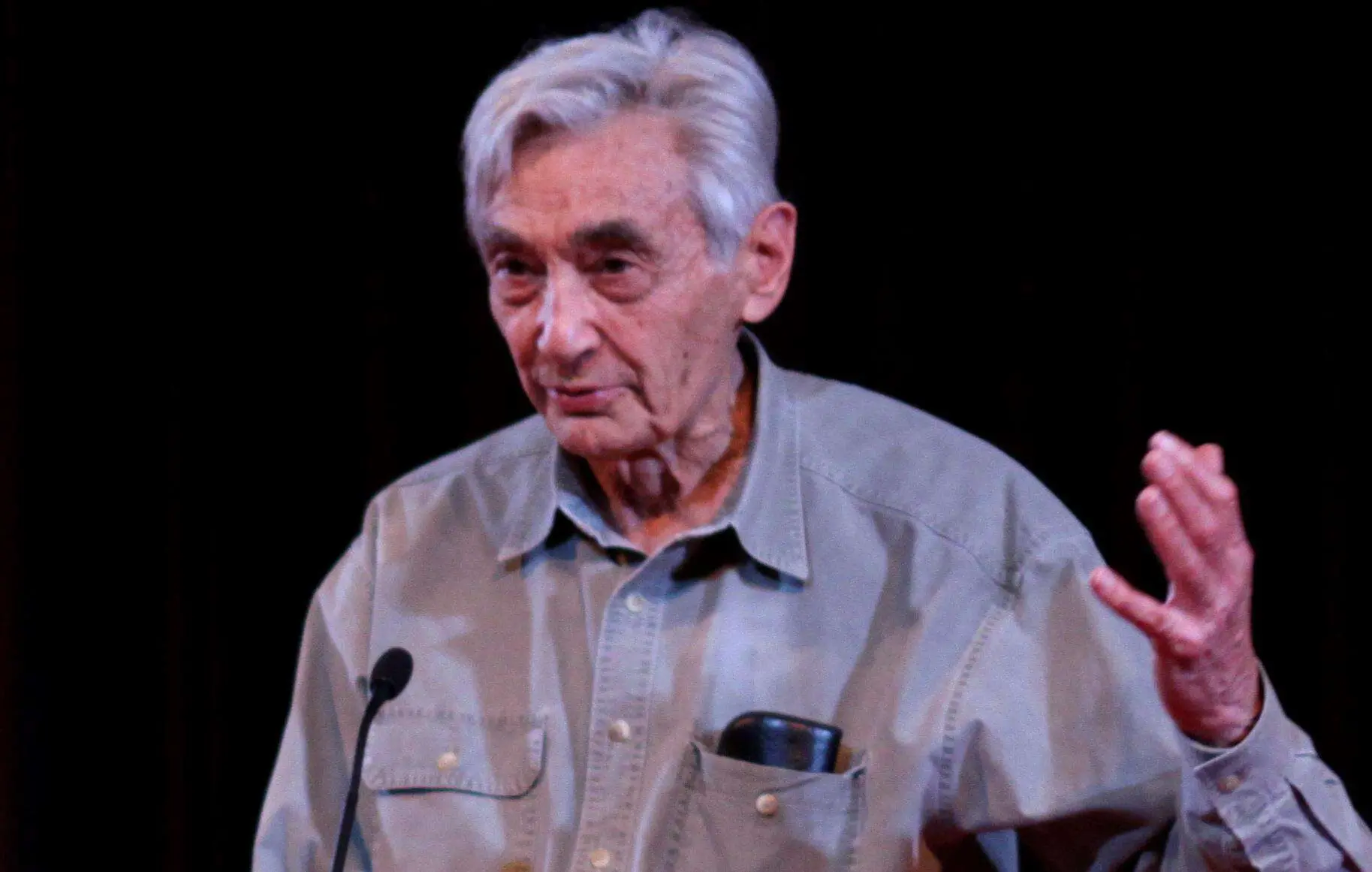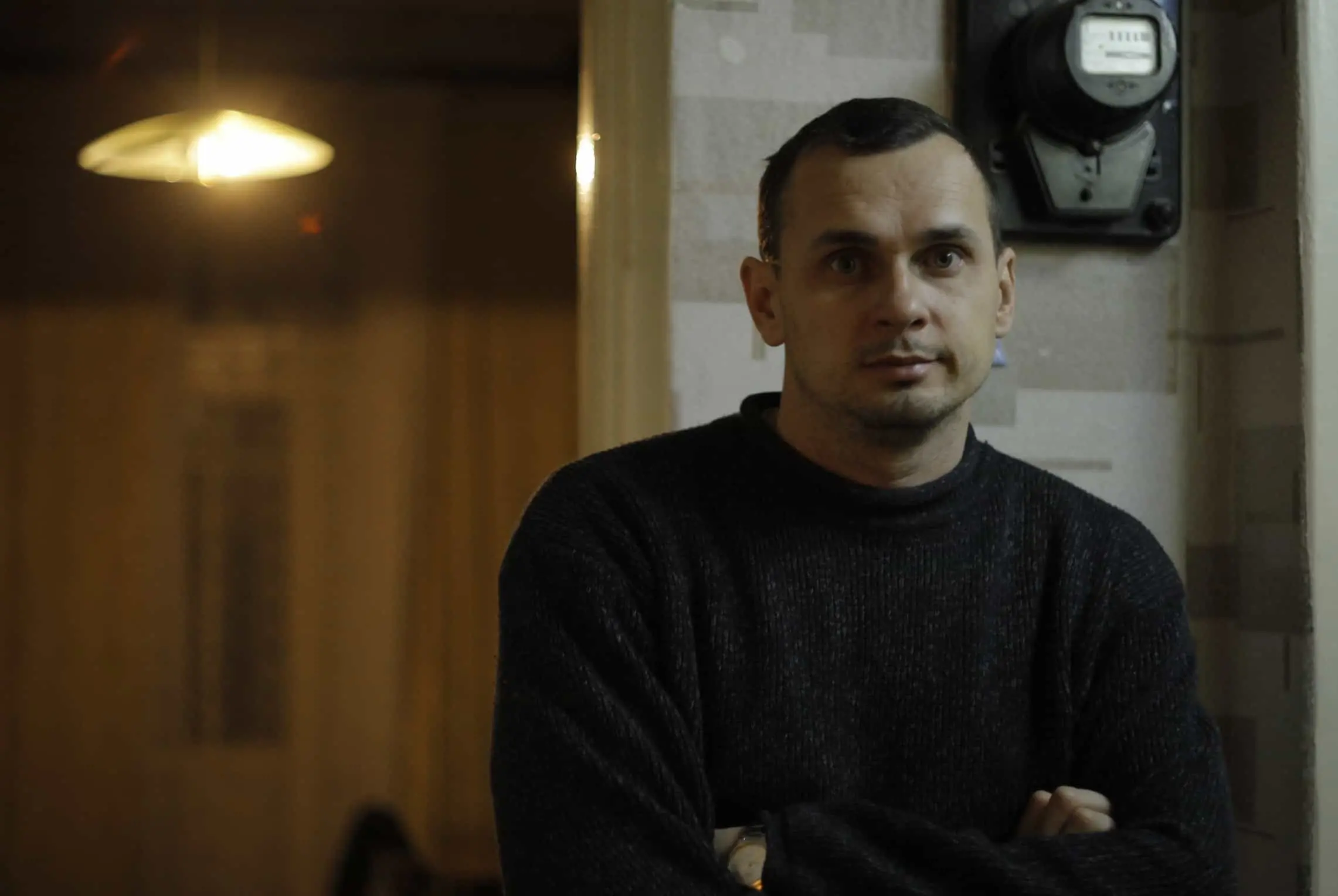As part of PEN America’s The M Word, a series of public programs that provide Muslim writers with a platform to address audiences on their own terms, playwright and The New York Times contributor Wajahat Ali talks with W. Kamau Bell, a comedian, podcast and TV host, and now published author. In this wide-ranging interview, Bell discusses his choice to interview avowed white nationalist Richard Spencer, the late Chris Cornell, and why he grew up thinking Muslims were cool.
Full Transcript
A 6’4, African American, Heterosexual, Cisgender, Left-Leaning, Asthmatic, Black and Proud Blerd, Mama’s Boy, Dad, and Stand-Up Comedian.
I don’t know if that fits in one tweet, but that’s how this man with glasses describes himself in his new book, The Awkward Thoughts of W. Kamau Bell. In fact, that opening was the subtitle—and a very subtle one at that. But even that ginormous title doesn’t capture all the hats Kamau is currently wearing. He’s a stand-up comedian, podcast host, activist, and fancy TV show host.
Currently in its second season, Kamau’s CNN original series, United Shades of America, takes Kamau around the country as he attempts uncomfortable conversations that create change. He’s hung out with the KKK—a very endearing hate group—talked to white supremacist Richard Spencer, lived off the grid, talked to inmates in prison, visited Standing Rock, and he’s gone to the scariest place of all: gentrified Portland.
He took some time out of his busy schedule to talk to PEN America and Wajahat Ali of Goatmilk Productions to discuss resisting Trump, confronting white supremacy while being married to a white woman, Hollywood, talking to actual Muslim Americans about Muslim issues, and whether or not black men can mourn and appreciate Chris Cornell.
WAJAHAT ALI: I want to get this out of the way because there’s so much news out today, and the last three days in particular. We’re so overwhelmed, and I feel like maybe this might be a cathartic exercise. So if you’re willing to indulge me, I’ll give you 15 seconds, I’ll time it, uninterrupted, stream of consciousness. Tell me what you think and what you feel when you hear me say, “President Donald Trump.”
W. KAMAU BELL: [Bursts out laughing] I’m really enjoying the fact that I know he’s having very miserable days the last few days. Now, as miserable as the days could be for a billionaire—let’s be clear about that—or at least a pretend billionaire. But I’m actually enjoying the fact, when you see his tweets, you’re like “Oh, it is not going so good for you, Donny? Not so good right now?” I’m taking visceral pleasure from that. While at the same time knowing that I can’t trust that just because he’s having a few bad days that it’s ultimately going to lead to any good for our side. But I am taking some reality show, Real Housewives Orange County pleasure from watching rich people suffer.
ALI: And when you mean “our side,” how would you define that tribe or that side?
BELL: You know, I think it’s an evolving side. I think we’re all sort of working out what that side is. Basically, if you look at Donald Trump and what he represents and the people that he’s put into the administration and the people who support that, you have to sort of go, “Well I’m not for that. I’m for the opposite of that.” And then you have to look at, “I’m for inclusion, and representation, and, you know, science.” And then you have to sort of look around you and go, “Who on this side is for that?” And I think a lot of times we get caught up in the minutiae of, “Well, if you’re not for composting on Wednesdays, I don’t think you can be on my side.” And I think we have to get over a lot of that stuff and really just go, “What are the big things we all believe in that we can all stand behind, that we can know that we are on the same side?” If we can look at the big things and the big picture, we way outnumber them. If it wasn’t for the leftover slaveholder-mapped electoral college, we would be sort of winning right now, but we’re not.
ALI: Yeah, I feel like it’s Twilight Zone, right? If you’re for clean water, if you’re for people with ovaries, if you’re for not destroying the climate, if you’re for tweets that are spelled correctly, not done in all caps, you’re a rebel. It’s an interesting time to be living in.
“I think a lot of times we get caught up in the minutiae of, ‘Well, if you’re not for composting on Wednesdays, I don’t think you can be on my side.’ And I think we have to get over a lot of that stuff and really just go, ‘What are the big things we all believe in that we can all stand behind, that we can know that we are on the same side?’”
BELL: If you’re for the thing that it says on the bottom of the Statue of Liberty: “Give me your tired, your poor, your huddled masses yearning to breathe free,” then you’re sort of like, “Leftist! Globalist!”
ALI: Yeah, outlier! But it’s also an interesting schism of what’s happening in America right now, because we can’t forget that 63 million Americans voted for him. And I know everyone says the Rust Belt, the Rust Belt, but people forget that it was about 54% white women and a lot of white suburban middle-class well-off folks who did not suffer in the 2008 economic recession. And his words, his platform made them feel better. It made them feel great. And if you think about it, their feeling of greatness comes at our expense. And how do we reconcile that 63 million of our fellow Americans feel this way?
BELL: I think we can all take a little bit of that blame. I think everybody’s been hung up in our silos during this last electoral cycle. Usually we’re just looking at what’s going on in our house or on our front lawn, not really thinking about our neighbors. And so I think right now you see a lot of people who are like “Oh my God, I didn’t realize that family that I like in our neighborhood is going to be deported because of who I voted for, because I voted for Trump.”
ALI: Yeah, oops. Or even the husband of a woman who voted for Trump.
BELL: People are so involved in their own little world of like “I’ve got Netflix; I’ve got my smartphone with all my apps on it.” And I think people really weren’t looking out beyond themselves, like you said, not even across the bed at their husband sometimes. We can build community and a stronger role of communities. Like get to know your neighbor so when your neighbor has a bad day, you know about it instead of just being like “Haha, my neighbor is having a bad day. Anyway, what’s on Netflix?”
ALI: I mean, Netflix is a very powerful draw, Kamau. You’re asking a lot from Americans to go away from 24-hour streaming Dear White People and Stranger Things. I mean, you’re asking a lot from us.
BELL: Yeah, streaming TV is hurting the revolution. [Laughs] People were able to be on the streets in the ‘60s just ‘cause there were only four TV channels.
ALI: If we were back to lack of cable and lack of streaming channels, maybe the world would be better? Like, Netflix and YouTube is the downfall of a cohesive, pluralistic America—and can you blame it? Because there are some damn good shows right now!
BELL: Well I mean it’s true. I see this: You walk around the world and everyone’s looking at their phone and everybody’s curating their entire experience. And Google and all the other tech companies are happy to make that even more so. You don’t even have to ask for directions anymore. And so then, when you’re ready to look up and you look around you, you go, “Wait a minute—what happened to all those restaurants in my neighborhood that I liked, that were super cheap and affordable? What happened to that old lady that used to walk by my house? What happened to the world?” And I think that, hopefully, this Trump election is a wake-up call for all of us. The thing is that people are like, “How come Donald Trump supporters haven’t turned on him yet?” We’re 119 days into Trump. 119 days into Obama, you couldn’t tell me anything bad about Obama. Nothing.
ALI: With your show, United Shades of America, you’re trying to disrupt these bubbles. You’re reaching out and talking to people like Richard Spencer, who is an alt-right, white supremacist. A lot of people appreciate you talking to the KKK and Richard Spencer. But other folks are saying there should be a hard line between trying to reach out and talk to folks who are oppressors instead of normalizing people we should be actively resisting.
BELL: For me it’s about context. I work on a news network, but I’m not a journalist, so when you sit down to have that conversation with somebody, sometimes you say I want to understand you so we can better exist in the world together. Other times, you say, “Can you explain yourself to me?” Like with me and Richard Spencer, I know there’s people in the viewing audience who either haven’t heard his name or haven’t heard those ideas spelled out in that way, and the reason those ideas are important is because those ideas are in the White House.
And I think that for me, and this is just a very basic thing: More knowledge is better than less knowledge. And I think a lot of this like “You’re normalizing him,” to me, these people are afraid that his ideas have a chance of winning. And for me, the way to get rid of Nazis is that you expose Nazis. [Laughs] “Look at this! It’s right here! These ideas are in the White House! We need to do something!” And if you watch the show, this is the thing that I think is so glaringly wrong about the criticism of that show: He did one part of the show. Most of the show is telling stories of immigrants and refugees who are fighting power, who I clearly love, who I embrace, hug. Me and Richard Spencer aren’t hugging in that interview, which if you watch United Shades, I’m probably 80 percent hugging on the show.
ALI: Yeah, you’re a hugger.
BELL: I’m a hugger. So it’s very clear whose side I’m on. And so to me, it’s so clear when people criticize that they didn’t actually watch it. If you did watch it and you’re still focusing on Richard Spencer and not focusing on, you know, I/O Spaces, which is a tech incubator program for African immigrants; or Ruby Corado, who’s running an LGBT home for wayward youth and LGBT refugees; or Sarah Zullo, who’s got a refugee Thanksgiving; and Mohammad, who’s the Syrian refugee; Williams Guevara, who testified before Congress to change laws to save his sister. If you’re not talking about those people to me, you’re only talking about Richard Spencer—well then who’s obsessed with white supremacy? And who’s normalizing white supremacy?
ALI: One of your mentors, Chris Rock, said something in an interview a few years ago that just stuck with me. He said progress in America is when white people become less crazy. “Maybe we shouldn’t lynch black people” or “maybe the KKK is a bad thing” or “maybe segregation is bad.” It’s just like the rest of us are just waiting for the white majority to become less crazy. And we talked about Trump and we talked a little bit about what’s happening in America right now. How much longer do we have to wait?
BELL: Well that’s the thing. I’ll take it back to the Richard Spencer thing. I think some people—a lot of white people especially who are on the left, or whatever that thing you call the left—think, “Well you know, I’m not crazy and my friends aren’t crazy, so I don’t think things are as bad as I hear people say they are.” And I go, “Look at Richard Spencer: TA-DA!” [Laughs] And then I go the other thing I think about that is: White people, he’s your fault, so you need to deal with Richard Spencer the same way that Ben Carson is my fault, the same way on some level Bill Cosby is my fault. You know, every black person in this country has had a Bill Cosby, Ben Carson statement or discussion at some point whether they wanted to or not. But white people tend to avoid those discussions. Every black person has to pick a side or decide what they think of that, but white people get away from that because they just get to be people. And so a part of one of my big jobs is to go “White people, claim your people; you know, get your boy—Richard Spencer, Donald Trump, Steve Bannon—like these are your people, and you’re ignoring them. And by you ignoring them and thinking things are fine, they’re making the rest of us crazy.”
ALI: I remember the first time we actually met—well, briefly—it was back in the Bay. We both have 510 area codes, which gives me joy, but it was 2008 and you had a one-man show: “The W. Kamau Bell Curve: Ending Racism in About an Hour”: a comedic exploration of the current state of America’s racism. My friend brought me to the show and said “I think you’ll really dig this,” and I thought it would be a comedy show. It was a comedy show, but it was also very personal and you were open and vulnerable. And at that time—I don’t know if you remember this—but you were talking about who I think is now your wife, but your girlfriend, who is from the white tribe. You revealed you went to her house and someone in her family just said something that just broke your heart because here you are, this 6’4 black guy who kind of sticks out. And you were navigating with the audience this kind of tense relationship where your lady had your back, but she was trying to introduce you as the guest who’s coming to dinner. And now you have biracial kids, right?
BELL: Just to be clear, with that same member of the white tribe, I now have two daughters. Two members of the half-white, half-black mixed-race black tribe.
ALI: And so it worked out, but what I’m saying is for you now it’s deeply personal because it’s not just, “Oh it’s them.” It’s like these are your daughters and your extended family; you have to negotiate and navigate these conversations. So how has that in any way given you perhaps a more nuanced perspective, made you more sensitive, or maybe it makes you more emotional?
BELL: It’s one thing to be a black guy on stage talking about racism and white people and white supremacy, you know, and then to suddenly fall in love with a white woman. I think, you know, “Some of my best friends are white!” So it wasn’t like, I’m not trying to pitch myself as a member of the Nation of Islam selling [something] to the white Christian. I was up on stage talking about whiteness and white people and racism, forgetting my wife Melissa. And we had times in our family when things got super awkward and super weird, and there was no way to run away from it because this was my girlfriend and we were in love, and we stayed together, and so I just had to sort of keep figuring it out and we all figured out how to deal with it.
And I would say this: Now, it’s great, but everybody didn’t deal with it in the same way in the family, but we all dealt with it, and now, especially now, with the kids around, it’s like whatever your feelings are about how you hate black people, it’s just different when you’re looking at the kids. It’s like “Aw, but not when they’re like this!” [Laughs] This being, you know, the kids are cute like in some way. And also, whatever people kind of thought about me at that point, I’ve just come out now. Like, I’m just this dude who’s also providing very well for his family, who is clearly taking care of his family, who clearly supports his wife’s decisions, also knows that she’s smarter than me, so I know when to shut up, and—
ALI: Very smart of you, sir, very smart of you!
BELL: [Laughs] Yes. Over the time, this is what it taught me: that you can have hope, but you still need action. So the action was to continue showing up, to continue to have the conversation, to change tactics. Sometimes I was like, I just can’t go [to family events]. I feel sad. But over time, if you have hope mixed with action, things can change. I think that’s why there’s no conversation I’m really as afraid of as the conversation I had with my in-laws about, basically, these issues. So for me, that and also my life in the Bay Area has sort of prepared me for the career I have. Once you’re in it, the awkwardness goes away and it’s just about the conversation.
ALI: I don’t know if you found out, but Chris Cornell died. [This interview took place the same day Cornell’s death was announced.]
BELL: Yes. I saw, yeah, that was the first thing. I opened my New York Times app and it was like Trump Trump Trump Chris Cornell, and I was like, “Oh, no.” I knew immediately.
ALI: Chris Cornell, Soundgarden, dead. Layne Staley, Alice in Chains, dead. Scott Weiland, dead. Kurt Cobain, Nirvana, dead. And everyone’s like, “Eddie, Eddie Vedder, stay alive brother. Stay alive Eddie!”
BELL: [Laughs] I kind of get the feeling that Eddie was never living as hard a life as the rest of those dudes. He was probably going to bed pretty early. He was not, you know—basically he’s the gym regular.
ALI: In your book, you mention Pearl Jam, because, as a black man, you’re expected just to be down with hip hop, and know everything, but you identified more with Eddie Vedder and Pearl Jam. A lot of people might say, “Oh, a lot of people who like grunge and are white are mourning [because of Chris Cornell].” But just from reading what you wrote about Pearl Jam, a lot of people would not assume this is a probably a big deal for a 6’4 black man who’s an activist and cares about progressive politics.
BELL: Chris Cornell and Soundgarden—that was my Seattle band. That was the band I liked the most. That was the band I felt the most connection to, and so for me it’s like, this is the day I feel like going out and saying something. And it’s also, like you said, it ain’t just white dudes in their late 40s and early 50s. [Laughs] See, you use the things that touch your soul and you don’t even understand why, they just do. And the more you’re open to talking about it, the more you realize there’s more people out there like you.
Chris Cornell was known to wrestle with his demons and a lot of that was through drug use, so, for me, as a black kid growing up, moving around a lot, being an only child, not feeling comfortable in his own skin, I felt that I spent a lot of time wrestling with myself, like, just really trying to like, get to know myself, getting angry with me, sort of, actively yelling at me, “Why aren’t you doing a better job, me?!?” Trying to dig deeper in myself and get to know myself and be comfortable in my own skin, and so, when you say that, and a song like “Outshined” comes on, it’s like, “That’s about me!” Or a song like “Blow Up the Outside World,” where, you know, where it’s just about how the outside world is not living up to your expectations, like that was, it was just aimed right at me in a way that like, Nirvana and even Pearl Jam just didn’t. I mean, it was fine, and I liked it, but it just didn’t hit me in my soul. Soundgarden just felt like—it felt like the soul crying out for more.
ALI: I think you’re right, the soul crying out, right? It’s edgy, it was dark, but it was paired up with these powerful vocals by Chris Cornell, these fantastic riffs, and I was amazed that it even went mainstream. And now that you did that audit of their career, I feel sad. Because, I’m processing, and I’m like, I grew up with their music, and I’m getting old, and Chris Cornell is dead.
BELL: Yeah. I know. It’s the way you never think of yourself as being as old as you are. You think of people being like a lot older and you’re like [Cornell was] 52, holy shit! He’s not that much older than me! And you know, I better drink a kale solution this morning, like it’s another wake-up call. A hero dies and also you check your own self, like, “Am I still breathing? How long am I gonna be here?”
ALI: When it comes to the black man a lot of people would not assume that you would be moved by Soundgarden, because there is a specific representation of the black male. When it comes to storytelling, we as people of color, we’re apparently okay with The Godfather. Like, I’m allowed to empathize with Al Pacino even though I have no idea what he’s saying in Sicilian.
BELL: [Laughs]
ALI: You know, but I get it! Every time we’re in [Hollywood] meetings, the question is, “How can your ethnic story relate to the mainstream?” Translation: “How can your brown/black story relate to the white mainstream who is somehow incapable of appreciating non-white narratives?” Explain how poisonous this is on the impact of perceptions and representation?
BELL: Well it’s certainly a narrative that Hollywood has bought into for many, many years. But what happens is when you buy into that narrative, then you don’t even work to challenge the narrative. It’s sort of like, if it is true that black and brown bodies don’t sell as much as white bodies, then the question should be, well how do we fix that? Not, well, if it’s even true, because we certainly don’t know it to be true because the sample sizes of black and brown representation on TV and film is so much smaller than white bodies on TV and film that they have not greenlighted as many projects, and they haven’t tried as many different things.
Think about the Spiderman franchise. Every few years they go, we gotta try it again. [Laughs] Every few years, they’re like, “We have to figure out this Spiderman thing again. Tobey Maguire, OK that’s not working. Andrew Garfield, OK that’s not working.” Now they’ve got some new kid. White people want a white hero.
Meanwhile, when was the last time you saw a Blade movie with Wesley Snipes or some other black actor playing Blade? They go, well, Blade’s done. I think that, thankfully now, the thing I learned from that, you can’t go through the main quarters of Hollywood all the time. Thankfully, in the twenty-first century, with YouTube, the cost of production is so much lower, you can do your own thing. And when you came and saw my show in 2008, that was me going, I’m not going to wait for Hollywood to give me permission to do this. I’m going to do my own thing. So when you think of Issa Rae’s Misadventures of an Awkward Black Girl, that started off as a YouTube thing. Now she has a show on HBO. They would have never given her the show without the YouTube show.
ALI: Yeah, ever. She had to bypass the system to be noticed by the system, in a strange way.
BELL: The thing that’s good about it is that when the system notices you, you can hold them up for money because you’re not new anymore. You’re not somebody that’s so happy to be here. If this doesn’t work out, I’ll go back to YouTube because those ad dollars are working out for me.
ALI: It seems they noticed you on your own terms. It seems that CNN is noticing you on your own terms, and this is a manifestation of what I saw on stage eight to nine years ago. That must give you some joy and comfort.
“I’m not going to wait for Hollywood to give me permission to do this. I’m going to do my own thing.”
BELL: It does, because no comedian, at least when I was coming up, said, “I hope to one day get a show on CNN.” To me, the lesson is: Imagine the goal but don’t actually expect what the path is to get there. Work toward this goal, “I want to be on TV doing the things I want to do.” But if I had said, “It’s got to be on NBC, Thursday nights on ‘Must See TV,’ because that’s where I saw the black shows when I was a kid,” then I’d feel like this was a failure. But in actuality, oh my God, CNN wants to do this? Great, let’s do it!
ALI: Yeah, I think only nerdy children of South Asian immigrants grow up saying, I want a show on CNN talking about spelling bees and how to be a doctor. We were allowed to be, like, maybe we can be the next Sanjay Gupta. Maybe. Crossing our fingers.
BELL: [Laughs] You have to be a doctor on CNN, you can’t be something else.
ALI: Speaking about the show and representation, in the most recent episode of your show, you go to the heart of the most popular minority in America, the one that everyone’s talking about, the ‘Mozlems.’ You talk to the Mozlems, and you go all the way to Dearborn, where apparently Shariah has taken over and is forcing everyone to eat halal meat. And you get into it. You go to a halal butcher. You see them do their exotic halal butchering of meat which somehow transforms it into extremist meat and you went all in. You went in, eyes wide open, openly saying I’m going to ask you dumb questions, I hope you don’t mind, talking to actual living, breathing Muslims.
You open the episode, and you said something that just rocked my world. Growing up, you wanted to be Muslim, because you thought we were cool. No one has ever thought I was cool in my life.
BELL: [Laughs]
ALI: That’s insane to me.
BELL: Well, it’s funny because when I was doing the episode you get taken over by the narratives that are currently in the world about how Muslims are terrorists or extremists. As I was putting things together, and I have to thank Trump for this, when Obama talked about Muslim sports heroes, Trump tweeted out, before he was president, “What Muslim sports heroes? I don’t know any Muslim sports heroes.” And then everyone tweeted back pictures of Muhammad Ali and Kareem Abdul-Jabbar and other people.
And I was like, “Oh yeah! Right! I loved Muhammad Ali when I was a kid!” It took me back, especially with the Nation of Islam, there was this cool factor with them. That’s the way into this episode. That’s my way to distinguish myself from a journalist, tell my story, connect it to my story. When we went to Chicago, I talk about how I graduated from high school, and as a kid, yes, I did have Muslim envy because I thought they were just cool. [Laughs] And that just starts in arguing against the narrative that currently exists.
ALI: It’s interesting because some people thought we were cool, but now we’re the threat. It’s a dark joke, growing up, the way the mainstream cheerleader always wanted to get back at her Dad was to date the black guy. And I missed out. I’m old now, apparently the Muslim guy is the one you date to rebel. And I told my wife, you totally c-blocked me, you c-blocked my entire, potential career as a Romeo.
BELL: [Laughs] I’m sure she has a lot of sympathy for you.
ALI: Yeah, she was very sympathetic.
ALI: You have talked to Native Americans, African Americans, gentrified Portlandians. You’ve gone to Michigan, talked to Muslims in the Bay Area [and Michigan] with a very rich Muslim community. You’ve seen the diverse American Muslim experiences. As a black man, and a chronicler of American history, if you had to audit my community right now, how would you say we as American Muslims are succeeding or messing up?
BELL: Wow, that’s a lot of pressure. Succeeding? Wow, there’s no way to win this question. [Laugh]
ALI: There’s no way, none.
BELL: Here’s the thing. I was at Berkeley. I lived around Berkeley for a long time. And I wondered, am I just noticing this now, or has it been this way all the time? Every time I see women in hijab or in burkas walking around Berkeley, you are the baddest mofo on the planet. The fact that you are not letting any of the nonsense and rhetoric deter you. This is where the alt-right comes once a week to kick ass and take names. I don’t want to say, just because it’s Berkeley it’s safer. Sometimes Berkeley is the ignorant part of the country. But whenever I see women walking around in hijab or burka, just walking around with their lives, that’s the baddest person on the planet right now. If there was ever a reason to find an excuse to not practice your religion the way you want to, it would be now. So for me, the fact that people are out there practicing their faith out loud in public, openly, and not hiding from it, to me that’s doing it the right way. Because that’s actually the way, in a word, to be normalizing things. Every time a person who thinks they’re scared of that sees that person shopping, buying groceries, and taking their kids to school, that’s winning. That’s doing the right thing.
“If there was ever a reason to find an excuse to not practice your religion the way you want to, it would be now. So for me, the fact that people are out there practicing their faith out loud in public, openly, and not hiding from it, to me that’s doing it the right way.”
ALI: How about the failures?
BELL: [Exhales] Having spent a week there in Michigan, the thing I was most blown away by was the diversity of opinions about issues that America thinks Muslims are all on the same page about. We try to highlight some of that in the episode. I wouldn’t call that a failure. I would say, let America know, that’s the thing. Muslim is a religion, it’s not a lifestyle. [Laughs]
We all understand with Christians, you can be Episcopalian, you can be Catholic. You can be Universalist Unitarian. All of these things can look different and have different details and have different ways in which they are in the world. And we understand that about Christianity, and I don’t think the world, certainly Americans, understand that about Islam.
ALI: No, no. There’s still a lot of work to be done. But you are helping us do it with your show and your comedy. I appreciate you taking the time to talk to me. I went above my 30-minute mark, because I was having too much fun. I apologize to the world for taking W. Kamau Bell for nine extra minutes. For those of you listening, watch W. Kamau Bell’s show on CNN—the show he always wanted growing up, of course, as a young black kid who wanted to be a comedian—United Shades of America, Season 2. The recent episode takes him all the way to Michigan, where he talks to actually living, breathing, authentic Muslims. His book just came out. It’s very funny, very insightful: The Awkward Thoughts of W. Kamau Bell. He has podcast, Politically Re-Active with Hari Kondabolu. You can catch him on tour this summer. Check out his website.
He’s a lover of Soundgarden and comic books. He’s a good dude. So, thank you, W. Kamau Bell, for joining us for PEN America’s M Word Series. I really appreciate it.
The M Word is a two-year series of public events launched in September 2016 to provide a platform for Muslim-American writers and cultural figures to address audiences on their own terms—highlighting the art forms, narratives, and identities that influence their work—and to challenge the prevailing narrow representations of highly diverse Muslim communities comprised of more than three million Americans. The M Word is supported by the Doris Duke Foundation for Islamic Art’s Building Bridges program.

